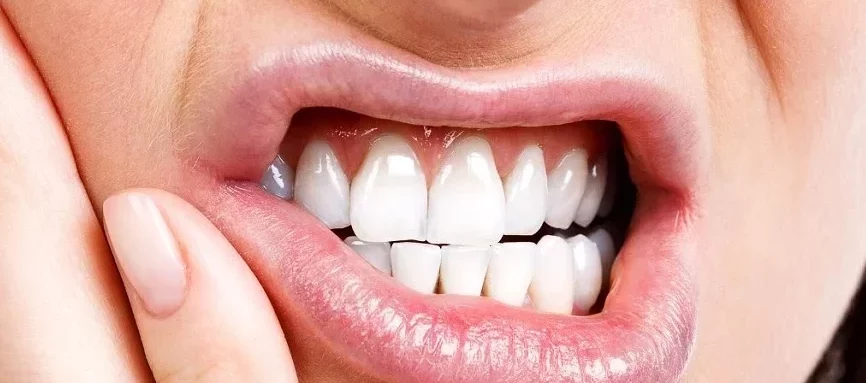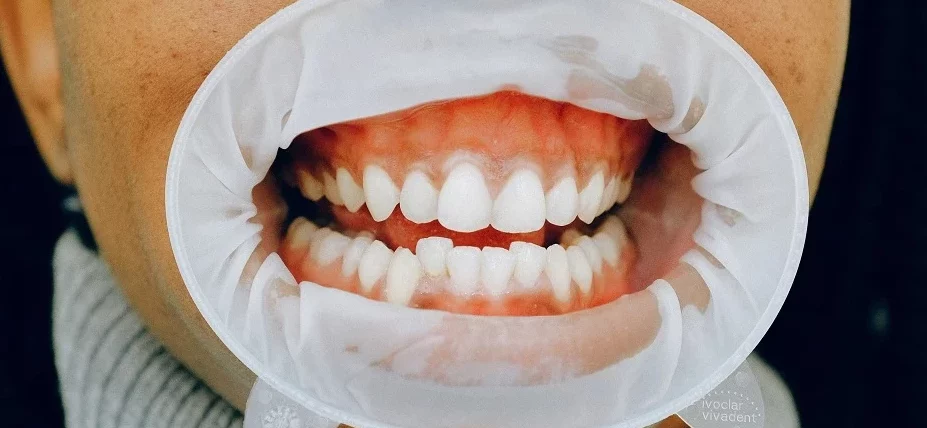Last Updated on: 27th December 2025, 05:26 am
Trench mouth has developed gingivitis. Gingivitis is a gum infection, associated with soft tissues, caused by a buildup of plaque and tartar, leading to an imbalance of bacteria that live in the oral cavity and causing problems such as bad breath, redness, soreness, bleeding, and swollen gums.
What is a Trench Mouth?
Also known as acute necrotizing ulcerative gingivitis (ANUG) or Vincent’s stomatitis, trench mouth is a bacterial infection of the gums, a more severe and advanced form of gingivitis; it can appear quickly and cause serious damage to the teeth and gums, and even spread to other areas of the mouth such as cheeks, lips or jaw.
The name of this disease comes from World War I, when soldiers were exposed to precarious conditions, without access to medical or dental care, living in trenches dug into the ground, and without the elements to perform proper oral hygiene, the reason why many of those soldiers presented serious gum diseases.
Why Does a Trench Mouth Appear and What Causes it?
This disease occurs when the balance of bacteria in the mouth is disrupted, and there is an excess of pathogenic bacteria.
Trench mouth affects between 0.5% and 11% of the population. It is more commonly found in young adults between the ages of 15 and 35 and people with autoimmune diseases such as HIV. Additionally, this disease is common in places where people have little or no access to dental health services, and where there is a high incidence of malnutrition.
The main cause of this condition is poor oral hygiene, but there are other risk factors associated with the appearance of trench mouth:
• High levels of stress
• Malnutrition, vitamin, and mineral deficiencies
• Smoking and alcohol abuse
• Weak immune system (cancer or other diseases requiring immunosuppressants)
• Infections in the throat, teeth, or mouth
• Having diseases such as diabetes or autoimmune diseases like HIV.
• Having gum injuries
• Having previously had gingivitis.
What are the Signs and Symptoms of Trench Mouth?
Symptoms of trench mouth usually appear suddenly and rapidly. There is often severe and intense pain that affects one or several areas of the gum. Other common symptoms include:
1. Bad breath, noticeable due to its unpleasant odor
2. Ulcers: crater-like sores between the teeth and gums, filled with plaque and food debris
3. Severe pain
4. Red and inflamed gums
5. Bleeding gums even with the slightest touch
6. Unpleasant taste in the mouth that is perceived by the patient. Some describe it as having a metallic taste like iron.
7. Destruction of the gum tissue around the teeth
8. Membrane of white, yellow, or gray color that covers the ulcerated papillae, which appear reddish and bleeding
9. Swollen lymph nodes around the head, neck, or jaw
10. Fatigue
11. Severe bleeding of the gums in response to any pressure or irritation, including brushing.
12. Fever
What Happens if the Trench Mouth is Not Treated?
If left untreated, this disease can lead to one or several of the following complications:
• Damage to the soft tissue at the gum level and spread to other areas of the mouth such as the jaw, cheeks, and lips.
• Irreversible damage to the gums and bone that can lead to loosening and loss of teeth.
• The patient may experience difficulty in performing daily activities such as talking, eating, and swallowing, leading to weight loss and dehydration.
• Bacteria can infiltrate the bloodstream (bacteremia) and spread to the rest of the body, potentially causing death.
• In very severe cases, oral gangrene may develop.
When to See a Professional?
It is recommended to visit the dentist at least twice a year (every 6 months). This habit will help you maintain good oral health, as well as diagnose and treat any diseases that may arise promptly.
If you have not developed this habit and have one or several of the symptoms described in this article, you should see a dentist as soon as possible. The healthcare professional will perform a clinical examination, and in some cases, may require X-rays to determine the degree of infection progression.
Timely treatment of trench mouth is crucial to prevent complications and future serious diseases. The goal of trench mouth treatment is to cure the infection, relieve symptoms, and restore gum health. Dentists may prescribe antibiotics and pain relievers for this purpose. Additionally, the treatment involves essential stages. These stages focus on restoring gum health through thorough cleaning, debris removal, and, if necessary, surgical interventions.
You can find more information about the treatment, diagnosis, and prevention of this disease in the article called “Treatment of trench mouth”, which is available on our website. Thank you for reading.
Frequently Asked Questions
What is trench mouth?
Trench mouth is a painful form of gum inflammation (gingivitis). Normally, the mouth maintains a balance of various bacteria. Trench mouth occurs when there is an overgrowth of harmful bacteria, leading to infected gums and the development of painful ulcers.
What's the difference between thrush and trench mouth?
Thrush is a fungal infection caused by Candida species that affects the mouth, throat, and sometimes the esophagus. In contrast, trench mouth is a severe bacterial infection that targets the gums.
Can you get trench mouth from kissing?
Kissing can transfer “bad” bacteria to your mouth, which can contribute to gum disease, but gum disease itself is not contagious. The majority of these “bad” bacteria already reside in your mouth. Even if some bacteria are passed to you through a kiss, it typically doesn’t make a significant difference.
Can children develop trench mouth?
Trench mouth is more frequently seen in malnourished children and adolescents. Issues with the immune system can also make it easier for harmful oral bacteria to thrive. Consequently, individuals with conditions like HIV are at a higher risk of developing trench mouth.
Share:
References
1. Chaubal, T., & Bapat, R. (2017). Trench Mouth. The American Journal of Medicine, 130(11), e493-e494. https://doi.org/10.1016/j.amjmed.2017.05.020
2. Coelho, S. (February 22, 2022). What to Know About Trench Mouth. Very well Health. https://www.verywellhealth.com/trench-mouth-5218403
3. Kapner, M. (Updated: January 24, 2022). Trench mouth. Medline plus. https://medlineplus.gov/ency/article/001044.htm
4. Krans, B. (September 29, 2018). Trench Mouth. Healthline. https://www.healthline.com/health/trench-mouth
5. Malek, R., Gharibi, A., Khlil, N., & Kissa, J. (2017). Necrotizing ulcerative gingivitis. Contemporary Clinical Dentistry, 8(3), 496. https://journals.lww.com/cocd/fulltext/2017/08030/necrotizing_ulcerative_gingivitis.31.aspx
6. Trench Mouth: What It Is, Symptoms & Treatment. (Reviewed: July 21, 2022). Cleveland Clinic. https://my.clevelandclinic.org/health/diseases/17776-trench-mouth
7. Ubertalli, J. T. (Updated: September 2022). Acute Necrotizing Ulcerative Gingivitis (ANUG). MSD Manual Professional Edition. https://www.msdmanuals.com/professional/dental-disorders/periodontal-disorders/acute-necrotizing-ulcerative-gingivitis-anug
-
Nayibe Cubillos M. [Author]
Pharmaceutical Chemestry |Pharmaceutical Process Management | Pharmaceutical Care | Pharmaceutical Services Audit | Pharmaceutical Services Process Consulting | Content Project Manager | SEO Knowledge | Content Writer | Leadership | Scrum Master
View all posts
A healthcare writer with a solid background in pharmaceutical chemistry and a thorough understanding of Colombian regulatory processes and comprehensive sector management, she has significant experience coordinating and leading multidisciplina...


















